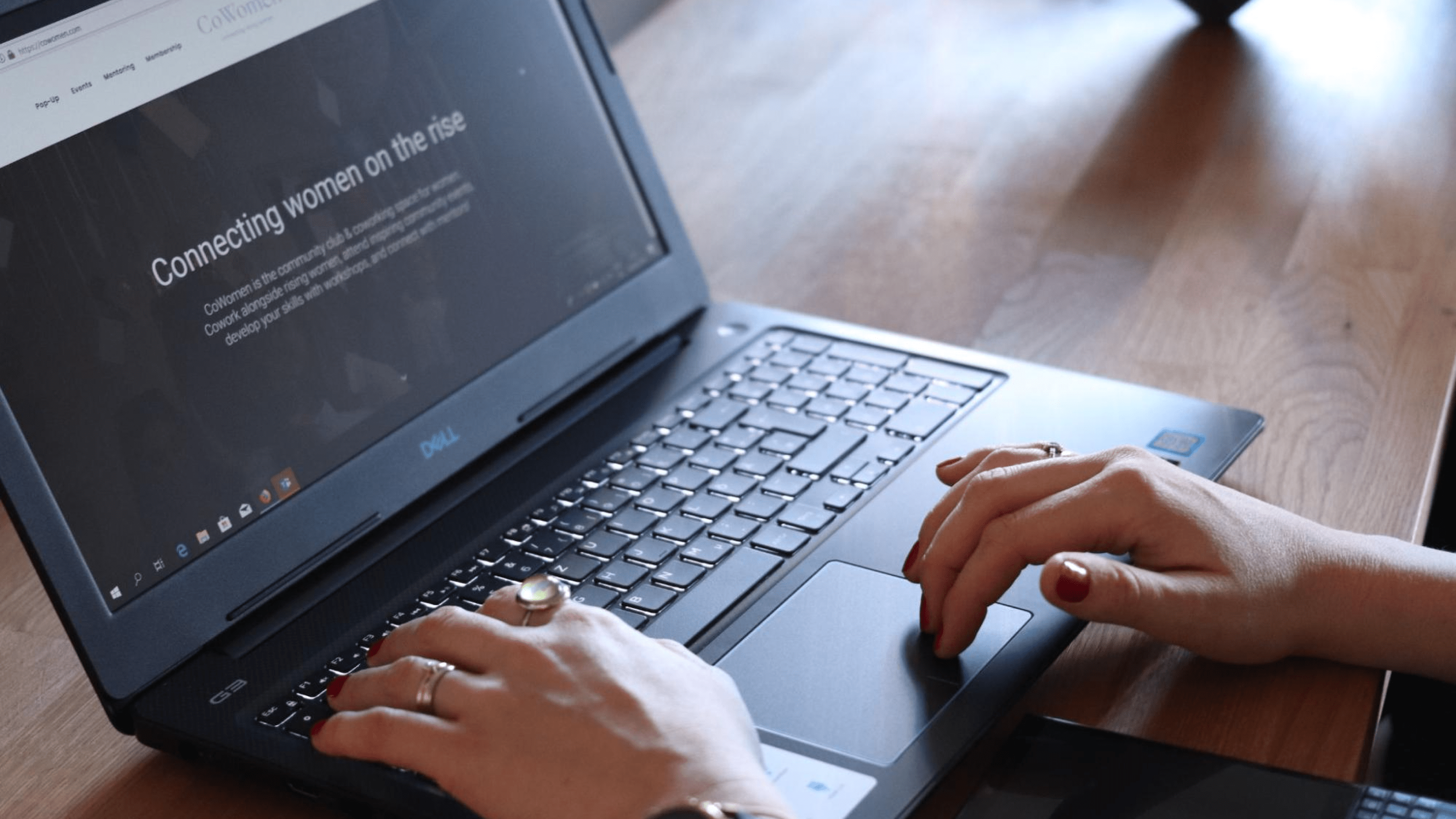Your website is the front window for your events: it’s how you’ll make the most of your first impressions with attendees, customers, and suppliers.
That’s why it’s crucial to ensure your website reflects your competency and makes it easy for visitors to contact you. But worry not — creating one doesn’t have to be complicated.
At Eventbrite, we’ve carefully analysed the key elements that contribute to the success of top event websites. We’ve distilled these essential components to help you create an impressive website that stands out and establishes your brand as one of the best.
Even better, we’ve made it easy for you to incorporate those elements into your free organiser page here on Eventbrite.
By implementing these crucial elements, you can ensure that your website has everything it needs to make a lasting impact and solidify your ability to make the best events you can.
Why it’s important to have an event organiser website
If you’re embarking on the journey of creating unique events, having a captivating website is a vital step in establishing your brand. A well-designed website not only gives you legitimacy but also helps you stand out in a crowded industry, giving you a distinct advantage.
Your website can be an effective tool for attracting new partners, vendors, sponsors and attendees, serving as a platform where they can explore your creative offerings, get a glimpse of your expertise, and ultimately choose to be a part of your events. By showcasing past events and highlighting your unique approach to event creation, you can captivate and engage those who seek one-of-a-kind experiences.
Your site also plays a critical role in driving attendees to your events. It should allow for seamless event registration, ticket purchasing, and access to essential event information.
Integrating your website with marketing tools like Eventbrite’s marketing suite allows you to extend your reach, foster engagement, and heighten anticipation for your events.
Key elements of a great event organiser website
Now that we’ve covered the importance of having an event planner’s website, let’s dive into the elements that transform a good website into a great one. These components help you differentiate your events from others’. Fortunately, you can create all of these elements on your Eventbrite organiser page for free!
Feature your upcoming events
Displaying upcoming events on your website serves multiple purposes. First, it provides visitors with a clear understanding of the types of events you offer.
This instant snapshot can both engage potential attendees and reassure potential partners and collaborators about your proactive involvement in the event planning scene. It also calls attention to your next events, so visitors can decide if they want to attend.
Showcase your past work
We’ve all heard of FOMO. The Fear Of Missing Out is a powerful feeling that can be ignited when you showcase your previous events.
When people see and read about the excitement and fun that took place, they become intrigued and eager to join in next time. But that’s not all. Sharing your past achievements, like the money you’ve raised for a cause, creates a sense of pride and accomplishment in your community.
And those candid shots of community members having a blast? They capture the joy and camaraderie that can only be found at your events, making others interested in experiencing your next event.
Make it easy to get in touch
Make sure your event planner website includes links to social media platforms and a way to get in touch with you.
By doing that, you create a seamless digital experience that allows visitors to easily transition between different platforms and contact you for more information. It gives people the opportunity to follow your activities across various channels and engage with you personally.
Get visibility on your website
Of course, your website won’t do you much good if nobody’s looking at it! That’s why it’s essential to find ways to draw more people to your site so they can appreciate all the information that’s there.
Having a website that is optimised for online searches helps. But optimising a website takes time and a lot of knowledge, so you may want to take the easy route and start building your website with Eventbrite. In doing that, you essentially borrow Eventbrite’s website authority instead of building up your own (oh, and did we mention it’s free?). More on this shortly.
How to build your website
If you’re looking to make your own event planner website, it might seem a little overwhelming at first. Fortunately, there are quite a few ways to make it — and some of them are easy and intuitive.
Why make your event organiser website with Eventbrite
Eventbrite has become a household name in the realm of organising events, offering a robust and user-friendly platform for event organisers around the globe. Let’s delve into the reasons why building your event planner website with Eventbrite could be a game-changing decision for your brand and event success.
The Upcoming Events Section
Your Eventbrite organiser page makes listing your future events straightforward. Eventbrite offers a dynamic “Upcoming Events” section that automatically updates with each new event you schedule.
This means that visitors to your website will always see the most relevant information about your future events. Plus, each event listing links directly to an Eventbrite page where visitors can buy tickets, register, or learn more, making the process seamless for your potential attendees.
You can design your event listings with attractive photographs and compelling titles. That helps them serve as call-to-action buttons to compel people to attend your events.
One organiser that does a great job of this is The Local Food Festival. By listing all of their upcoming events months ahead of time with attractive photos and descriptive titles, they make each one a powerful call to action.
Party ‘N’ Paint has a similarly successful upcoming events section. Rather than just use attractive photos, they overlay theirs with consistent branding and exciting graphics that give more information about the event and solidify their brand.
The Past Events section
The “Past Events” section on your Eventbrite organiser page can function as an impressive portfolio of your skills and accomplishments. Each event you create is automatically added to the section when you complete it, creating a portfolio of your past work.
That’s what R&B Party does with their past events page. You can see that they’ve planned tons of R&B parties in the past, letting people know that’s their speciality and that they know what they’re doing. It helps potential collaborators and attendees know exactly what to expect.
The Leamington History Group also accomplishes this with their Past Events page. The variety of events they’ve hosted in the past can help potential attendees or event organisers know what kinds of events they have successfully hosted.
Some event organisers are more seasonally focused, like Macdonald Alveston Manor Hotel & Spa, which hosts the majority of events around Christmas and New Year’s Eve.
Skyrocket your ticket sales with Eventbrite and Facebook

Contact information and social media integrations
Eventbrite’s organiser pages make getting in touch with you effortless. You can easily connect your social media accounts to your organiser page, enabling visitors to navigate to your social media platforms with one click. They also come with a built-in “Contact” button, meaning that people can reach you directly from there.
This enhances user experience and capitalises on the power of social media to promote your events, demonstrate your expertise, and build a community around your brand. At the same time, it makes it as easy as possible for interested people to get in touch.
In addition to linking to Facebook, Twitter, a personal website, and using Eventbrite’s built-in contact button, putting your email address or phone number in your profile picture will give visitors several different ways to easily contact you.
If you want to stick to your logo for your profile picture, it’s also a good idea to add this information or a link to your website in your description text. It’s another great way to make it even easier for potential clients and attendees to get in touch with you.
Drive traffic to your events
If you’re using your Eventbrite organiser page as your website, it drives traffic to your events by promoting them to people looking for something to do in your area when you’re hosting your event. You’re also more likely to appear at the top of a Google search thanks to the fact that you’re leveraging Eventbrite’s huge domain authority.
This is what it could look like for someone looking at weekend events in Birmingham on Eventbrite:
As you can see, Eventbrite drives traffic to event organisers of all kinds, which gives you three ways to increase your events’ visibility:
- Gain followers
Eventbrite promotes events from established, well-liked organisers with more followers. That’s why it can be helpful to build your follower count as you promote your events. Accounts with large followings appear at the top of the search page.
To gain more followers, consider asking your event’s attendees to follow your page or promote it on your social media accounts. In the search above, you can see that Throwback Events made it to the top of a competitive search by accruing over 6,800 followers.
- Use Eventbrite Ads
Eventbrite Ads lets you boost your event’s visibility for people making relevant searches. You can see that despite not having as many followers, Tropical Splash UK was able to make sure his Spies of Wall Street tour was visible at the top of that search.
- Avoid competition
Another way to get more visibility on Eventbrite as you’re just starting out is to post in places and times that are less competitive. That could mean holding some events on weekdays instead of weekends or hosting them in less-competitive markets. In either case, you’ll run into fewer events organised by people with thousands of followers.
How to make your event planner website with Eventbrite
Eventbrite is one of the most popular websites for event organisers for good reason. You can make an organiser page with all of the key elements you need in an event planner website in a few simple steps.
- Create an Eventbrite account
First, you’ll need to make your Eventbrite account. All you have to do is set up your email and password or use Facebook, Google or Apple to sign in.
- Click “Manage my events”
Next, go to the menu at the upper right corner and select “manage my events.”
- Go to your Organisation Settings
After that, you can select “Organisation Settings” from the menu on the left side.
- Complete your Organiser Profile
Finally, just input your organisation’s name, a profile image, your website’s URL, a description of your organisation and any social media links you’d like to add.
And just like that, you’re done. Easy peasy.
Using a website builder to build your event planner website
You can also use a popular website builder like Wix or Squarespace to make your website. However, to get full features and enable you to optimise the website for search engines, you will likely have to pay a regular fee. While WordPress is free, you will also have to pay for a reputable web host.
Building your own stand-alone site with a website builder will vary in complexity, but there’s usually a simpler option for those who are less tech-savvy.
Similarly to creating your website on Eventbrite, you’ll start by creating an account and selecting whether you want to use a theme or not. Using a premade theme can make the process much easier, but it might not be customised exactly to your liking.
Then, you’ll want to make each of the pages. You should include a page for each of the key elements discussed earlier, but you can add more if you wish. These are the most important pages for you to choose between:
- Home
- About Us
- Contact
- Past Events
- Upcoming Events
- Services & Pricing
One important note is to make sure your website is equally accessible on desktop and mobile devices. While Eventbrite organiser pages are automatically built to be accessible on both, custom-built web pages may not be. And since 48% of search engine traffic comes from mobile devices, not optimising for them could mean losing business.
Bring more visitors to your website
An event organiser’s website serves as a pivotal platform for establishing their brand, attracting new business, and promoting their events. Showcasing upcoming events, providing proof of past work, and facilitating easy contact with potential collaborators will enhance their website’s effectiveness.
Eventbrite’s marketing suite can also help drive more visitors to your event planning website. With its robust set of marketing tools, you can easily promote your events, generate interest, and keep your audience engaged. The suite includes features such as email marketing, social media integration and website widgets that can increase your site’s visibility to attract more visitors.






